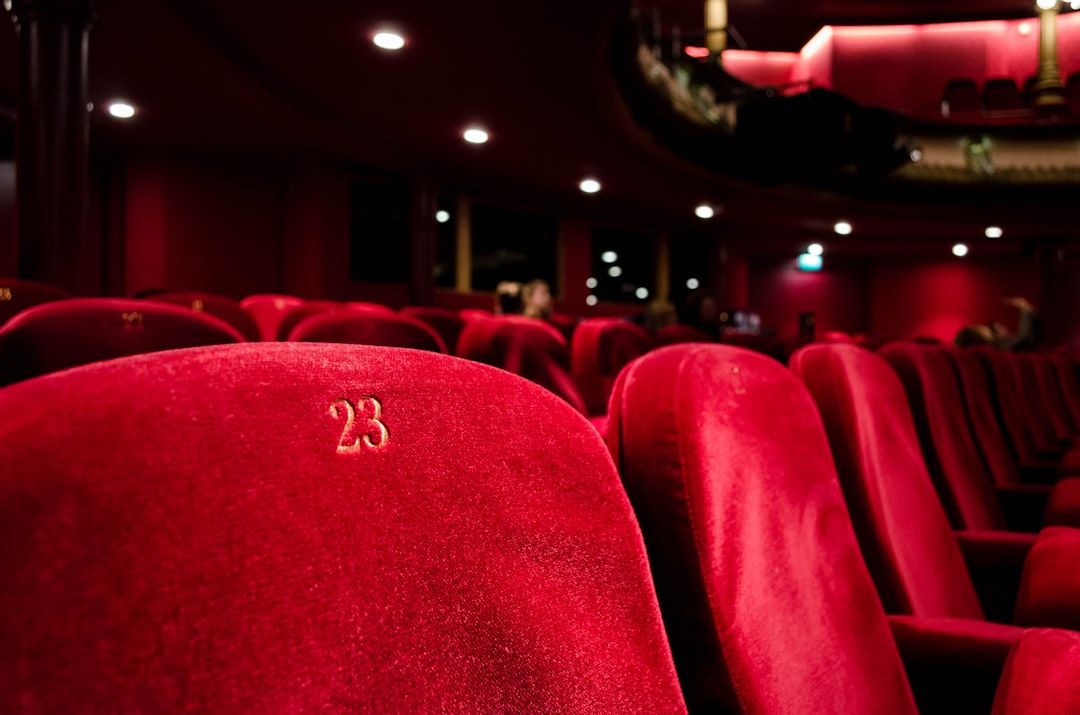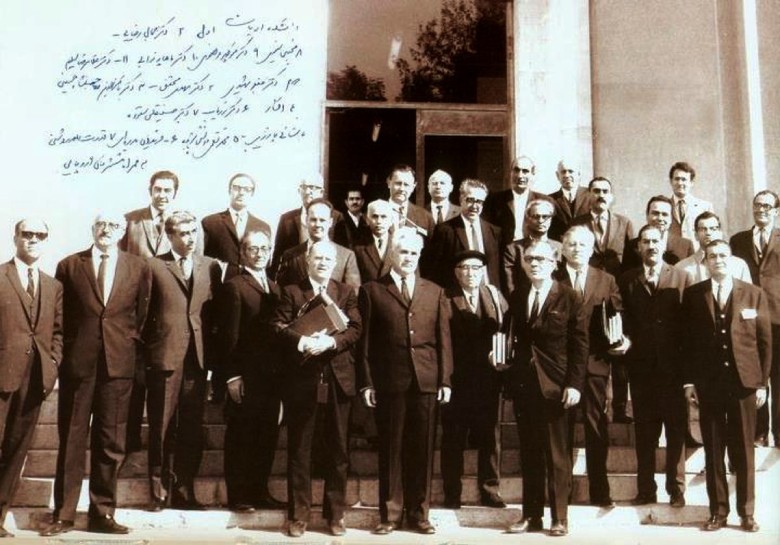Iranian cinema has garnered significant attention and acclaim over the past few decades, captivating audiences around the world with its rich storytelling, emotional depth, and nuanced portrayal of Iranian society. Despite facing numerous challenges—from censorship to economic sanctions—Iranian filmmakers have created a body of work that is both innovative and profoundly moving. Whether dealing with themes of social justice, family dynamics, or the human condition, Iranian cinema serves as a powerful window into the culture, history, and daily life of Iran.
In this blog post, we'll explore the essence of contemporary Iranian cinema, its major themes, and the filmmakers who have shaped its global reputation. From Oscar-winning directors to daring young talents, Iranian cinema is a thriving and dynamic world of creativity and expression.
🎬 A Brief History of Iranian Cinema
Iran's cinematic journey began in the early 20th century, with the first films being produced in the 1920s. However, it was not until the 1979 Iranian Revolution and the subsequent rise of the Islamic Republic of Iran that Iranian cinema began to truly evolve into a distinct and internationally recognized form. The revolution brought with it a wave of censorship and restrictions on artistic expression, but it also sparked a period of artistic experimentation.
The 1980s and 1990s saw the emergence of Iranian directors like Abbas Kiarostami, Mohsen Makhmalbaf, and Jafar Panahi, whose works pushed the boundaries of the medium, addressing complex social issues while adhering to the limits of censorship. These filmmakers developed a unique visual style, focusing on long takes, minimalist settings, and naturalistic performances that allowed audiences to connect deeply with the characters and their emotional journeys.
Over the years, Iranian cinema has gained worldwide recognition, earning prestigious awards at film festivals such as Cannes, Venice, and Berlin, as well as Academy Award nominations and wins. Today, contemporary Iranian filmmakers continue to push boundaries, engaging with both domestic and global audiences.
🏆 Key Themes in Contemporary Iranian Cinema
Contemporary Iranian cinema often explores a rich tapestry of themes, deeply rooted in the country's complex social, political, and cultural fabric. The films offer a window into Iranian society, its struggles, and its aspirations. Here are a few recurring themes:
1. Social and Political Commentary
Iranian cinema has long been a tool for expressing social and political issues, sometimes subtly and sometimes overtly. Filmmakers often navigate the fine line between social critique and government-imposed restrictions. Films such as "The Circle" (2000) by Jafar Panahi and "Offside" (2006) explore themes of women's rights and gender inequality, revealing the struggles of Iranian women in a patriarchal society.
Contemporary Iranian films also explore broader issues such as economic hardship, religious tensions, and the challenges of living under a restrictive regime. Directors like Asghar Farhadi and Rakhshan Bani-Etemad are known for their candid portrayal of the everyday lives of Iranians, often focusing on the internal conflicts and moral dilemmas that shape personal choices in the face of societal pressures.
2. Gender and Family Dynamics
Iranian cinema places a strong emphasis on family relationships and gender roles, often examining how women navigate the constraints of traditional expectations. Family is at the heart of many Iranian films, with stories that explore parent-child relationships, marital struggles, and the emotional complexities of family dynamics.
Asghar Farhadi’s "A Separation" (2011) is a remarkable exploration of marital strife, divorce, and social class in modern Iran. The film won the Academy Award for Best Foreign Language Film and became one of the most acclaimed films from Iran. It sheds light on the moral and ethical dilemmas that arise when the personal intersects with the societal, especially in a context where divorce and family disputes are still taboo.
3. The Intersection of Tradition and Modernity
Another theme often explored in Iranian films is the tension between tradition and modernity. This theme manifests in various ways, from characters struggling to reconcile their traditional values with the pressures of a rapidly changing world, to the struggle of younger generations seeking to break free from the constraints of an older, more conservative society.
Films like "The Past" (2013), directed by Asghar Farhadi, explore this clash through complex characters who navigate their personal dilemmas while confronting the weight of societal expectations and personal history.
4. The Role of Religion and Faith
Iran, as an Islamic Republic, is deeply influenced by Islamic principles, and religion often plays a central role in shaping the personal lives of Iranian citizens. Many contemporary Iranian films explore the role of faith, questioning its impact on both individual lives and the larger society.
In "The Song of Sparrows" (2008), Majid Majidi portrays the journey of a simple man whose faith and personal choices come into conflict with the harsh realities of life. The film examines how individuals balance spirituality with economic survival and the quest for happiness.
🎥 Notable Filmmakers in Contemporary Iranian Cinema
Iran has produced some of the world’s most influential filmmakers, many of whom have made an indelible mark on global cinema. Here are a few of the most well-known directors:
Abbas Kiarostami
One of the most famous Iranian directors, Abbas Kiarostami (1940–2016) is widely regarded as a pioneer of Iranian cinema. His films, such as "Taste of Cherry" (1997) and "The Wind Will Carry Us" (1999), are celebrated for their minimalist approach and their ability to convey profound philosophical themes through simple, poetic narratives. Kiarostami’s work is characterized by its meditative pacing, open-ended questions, and visual beauty.
Asghar Farhadi
Another giant of contemporary Iranian cinema, Asghar Farhadi has won international acclaim for his emotionally charged dramas. His films such as "A Separation" (2011) and "The Salesman" (2016) delve into the complexities of human relationships and social norms in Iranian society. Farhadi’s ability to depict ordinary people in extraordinary circumstances has made him one of Iran’s most celebrated directors.
Jafar Panahi
Though banned from filmmaking by the Iranian government since 2010, Jafar Panahi continues to create poignant, rebellious films that critique Iranian society and politics. "This Is Not a Film" (2011) and "Taxi" (2015) are two examples of his ability to make films under restricted conditions, often using innovative techniques to evade censorship and convey powerful narratives.
🌍 Global Recognition and the Future of Iranian Cinema
In recent years, Iranian cinema has achieved global recognition, winning prestigious awards at major film festivals like Cannes, Berlin, and Venice. Films like "The Salesman" (2016), "A Separation" (2011), and "The White Balloon" (1995) have introduced international audiences to the complexities of Iranian society and culture, allowing viewers to engage with a different perspective on the world.
While challenges such as censorship and political unrest persist, Iranian filmmakers continue to innovate and tell deeply human stories. Their works transcend borders, offering universal themes of love, family, and moral struggle that resonate with audiences worldwide.
🎬 Conclusion: A Cinematic Journey
Contemporary Iranian cinema is a remarkable blend of artistry, resilience, and cultural richness. Despite facing immense obstacles, Iranian filmmakers have crafted films that offer a unique and profound exploration of life, society, and the human spirit. These films are not just a reflection of Iran; they are windows into universal truths that speak to audiences around the world.
For anyone interested in world cinema, Iranian films provide an insightful journey into the heart of a complex and fascinating culture. Whether you’re drawn to the minimalist beauty of Abbas Kiarostami’s works or the emotional depth of Asghar Farhadi’s dramas, Iranian cinema offers something for every movie lover.





